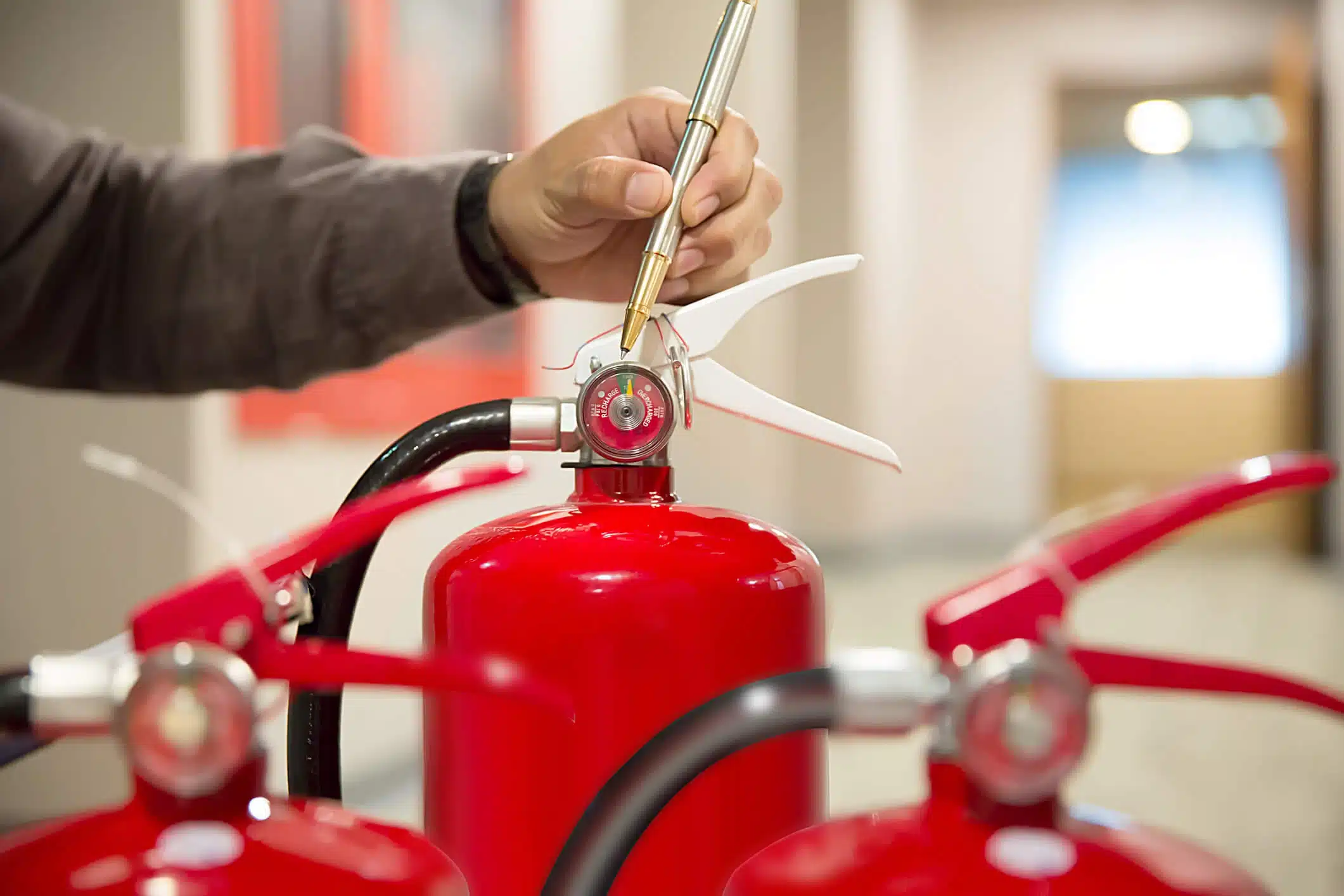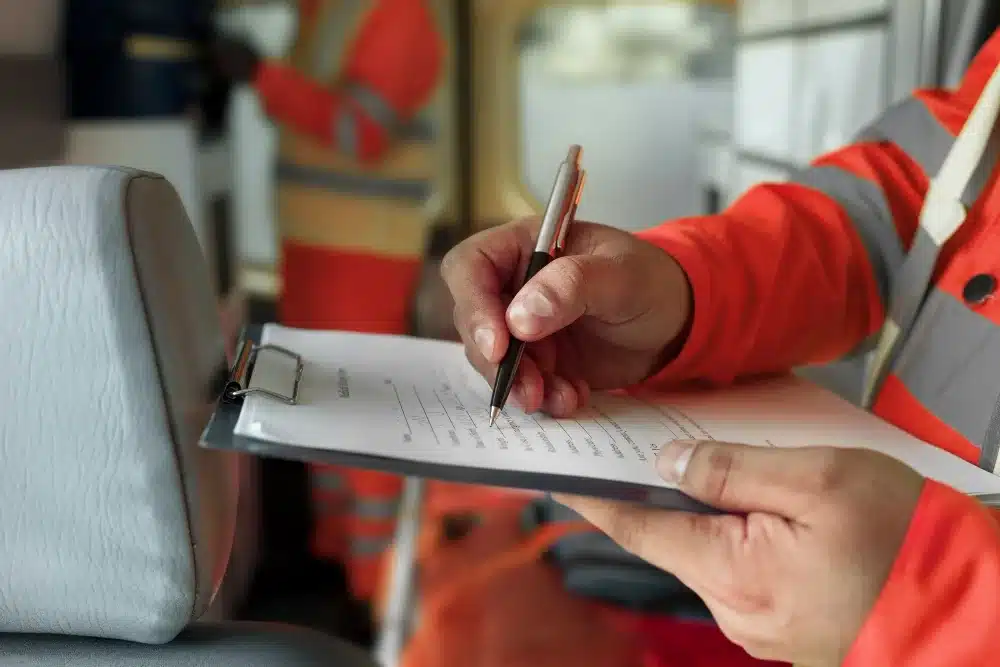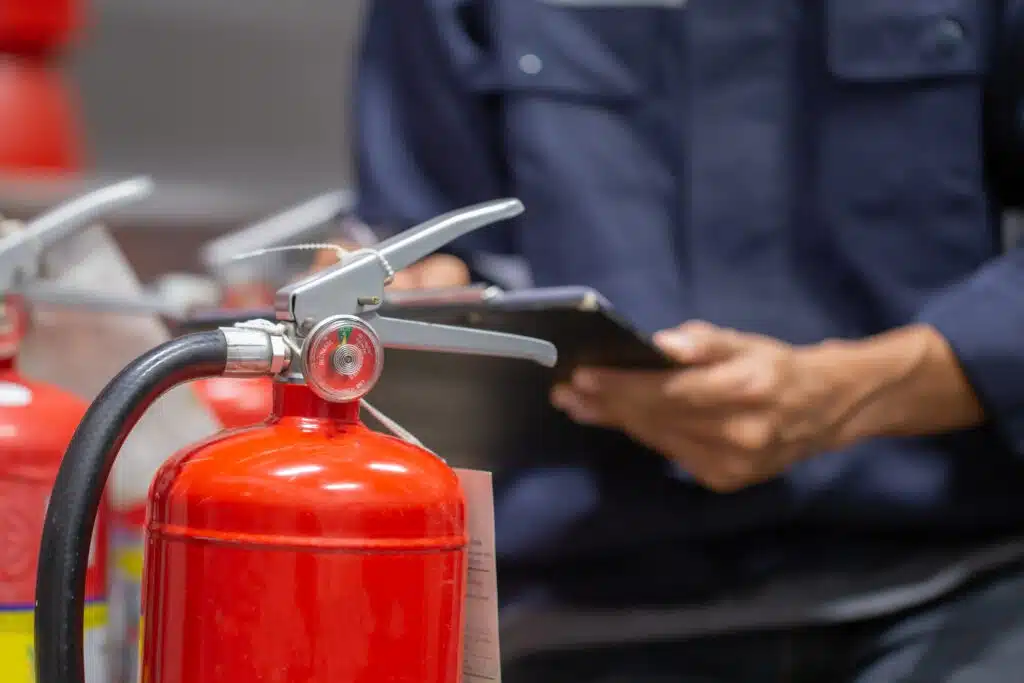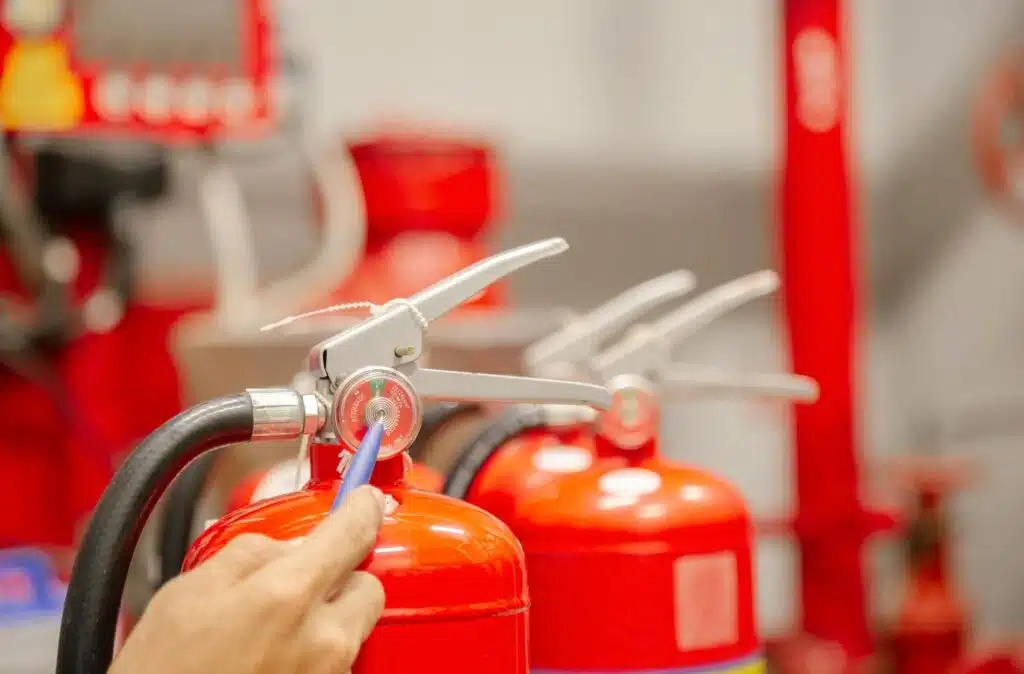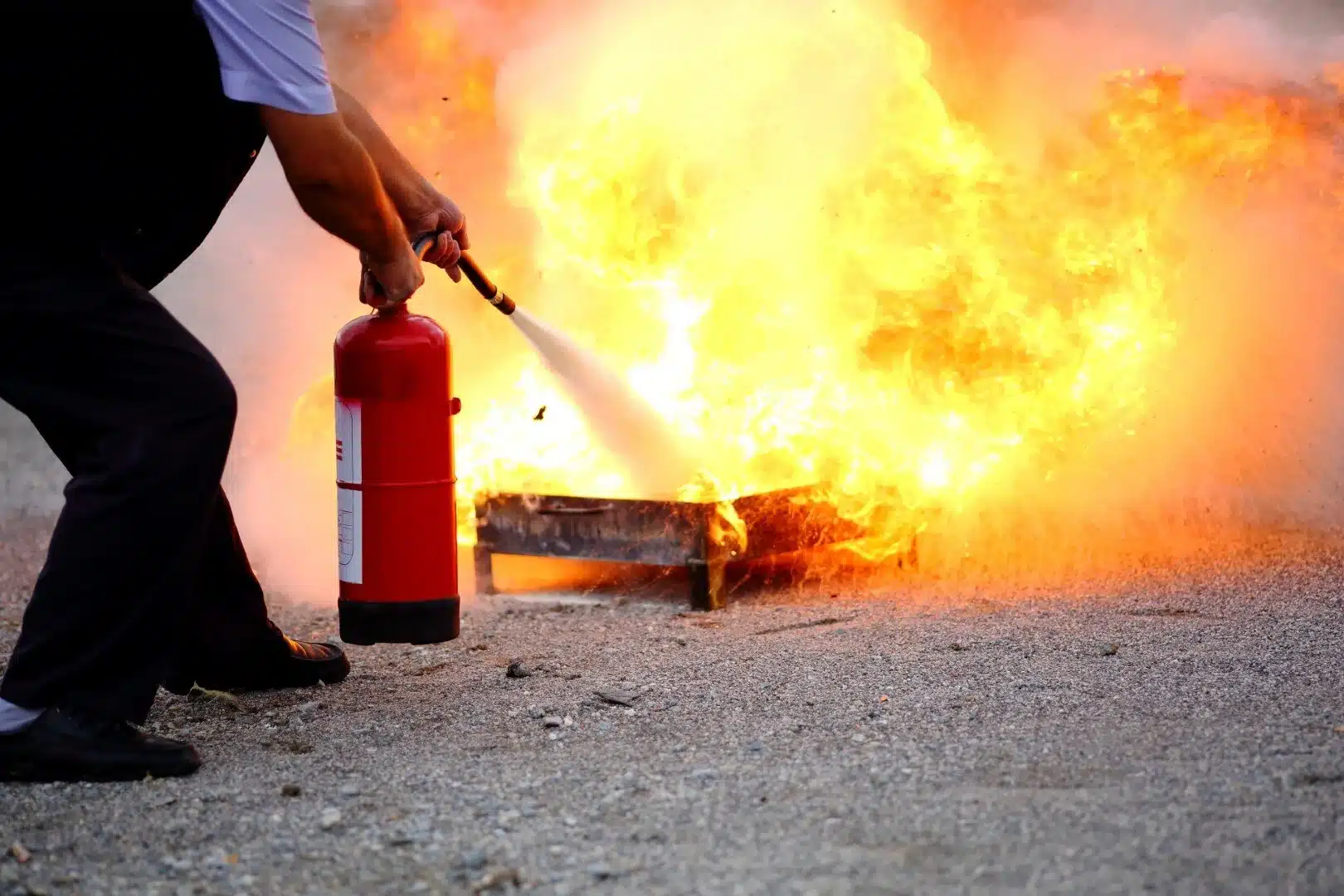If you’re a landlord, property manager, or business owner in the UK, you’ve likely heard that fire risk assessments are a legal requirement. But here’s where many property owners get stuck: who can carry out a fire risk assessment legally and safely?
The confusion is understandable. Unlike gas safety checks, which must be completed by Gas Safe registered engineers, fire risk assessments don’t have a single regulatory body. This grey area has led to a surge of unqualified “assessors” offering cut-price services—putting landlords at risk of non-compliance, insurance invalidation, and worse, endangering lives.
Under the Regulatory Reform (Fire Safety) Order 2005, you must ensure your fire risk assessment is carried out by a “competent person.” But what does that actually mean? And how do you know if someone is genuinely qualified?
This guide breaks down exactly who can legally conduct a fire risk assessment, what qualifications matter, and how to choose the right professional to protect your property and tenants.
What the Law Says About Fire Risk Assessments
The Regulatory Reform (Fire Safety) Order 2005 is crystal clear: if you’re responsible for a building (or part of one), you must complete a suitable and sufficient fire risk assessment. This applies to landlords, managing agents, employers, and anyone with control over premises.
But here’s the critical detail: the law requires the assessment to be carried out by a competent person. According to the legislation, a competent person is someone with “sufficient training, experience, knowledge, and other qualities” to properly assess fire risks and identify appropriate control measures.
There’s no prescriptive list of qualifications, which is where the confusion begins. However, UK fire safety regulations make it clear that competence isn’t just about good intentions—it requires demonstrable knowledge of fire safety principles, building construction, fire behaviour, and current legal requirements.
For landlords especially, this matters enormously. If the London Fire Brigade inspects your property and finds your fire risk assessment inadequate, you could face enforcement notices, prohibition orders, or prosecution. The defence of “I used someone cheap” won’t stand up in court.
Who Can Legally Carry Out a Fire Risk Assessment in the UK
Let’s break down who qualifies as competent to conduct fire risk assessments, from simplest to most complex scenarios.
The “Responsible Person” (In Simple Cases Only)
Technically, you the landlord or business owner can carry out your own fire risk assessment. But only if you genuinely understand fire safety principles and your property is straightforward.
This might work for a small, single-occupancy property with simple layout and low fire risk. However, for Houses in Multiple Occupation (HMOs), commercial buildings, or anything with shared escape routes, self-assessment is rarely adequate.
Ask yourself honestly: do you know the difference between a 30-minute and 60-minute fire door? Can you assess compartmentation integrity? Do you understand travel distances and protected stairways? If not, you’re not competent and your insurance company will likely agree.
Competent Internal Staff
Some larger organisations employ staff with fire safety training to conduct assessments internally. This can be acceptable if the person holds recognised qualifications and maintains continuing professional development (CPD).
However, for landlords with rental portfolios, relying on an in-house handyman or maintenance worker is risky unless they have formal training and relevant experience. Good intentions don’t equal competence.
Professional Fire Risk Assessors
This is the safest route for most landlords and property managers. A professional fire risk assessor should hold recognised qualifications, maintain up-to-date knowledge, and carry professional indemnity insurance.
Look for assessors who are members of professional bodies or hold certifications from recognised institutions. They should conduct thorough site visits—beware anyone offering to complete your fire risk assessment remotely or from photographs.
Third-Party Accredited Companies
Many landlords work with fire safety consultants or specialist fire safety companies. These organisations employ qualified assessors and typically hold company-level accreditations.
Accredited fire risk assessment providers offer additional reassurance because they’re regularly audited for quality and competence. They’re particularly valuable for complex buildings or large portfolios.
Specialists for High-Risk or Complex Buildings
If you own an HMO, commercial property, mixed-use building, or heritage structure, you need an assessor with specific experience in that building type. Fire safety compliance in UK properties varies significantly based on:
- Building height and construction
- Occupancy type and vulnerability of residents
- Compartmentation and fire protection measures
- Means of escape complexity
A competent person for a small shop isn’t necessarily competent for a six-storey HMO. Choose accordingly.
Fire Risk Assessor Qualifications (UK-Recognised)
While there’s no single mandatory qualification, several UK-recognised certifications demonstrate competence. Here’s what to look for:
Key Qualifications and Accreditations
Institution of Fire Safety Managers (IFSM): Membership grades (especially MIFSM and FFIFSM) indicate professional competence and ongoing development.
Institution of Fire Engineers (IFE): Offers various qualifications including fire risk assessment certifications that are highly respected in the industry.
Fire Risk Assessment Competency Council (FRACS): Provides a framework for assessing competence and offers registration for qualified assessors.
BAFE SP205: This third-party certification scheme specifically covers fire risk assessment services. Companies holding SP205 have been independently assessed for competence and quality.
UKAS Accreditation: While not specifically for fire risk assessments, UKAS accredited companies undergo rigorous quality auditing.
Experience and CPD
Qualifications alone aren’t enough. A competent person fire risk assessment requires practical experience. Look for assessors who can demonstrate:
- Years of active experience in fire risk assessment
- Familiarity with your property type (especially FRA requirements for landlords with HMOs)
- Regular continuing professional development
- Knowledge of current regulations and guidance
The best professional fire risk assessor combines formal qualifications with real-world experience and stays current with evolving fire safety standards.
Who Should Not Conduct an FRA
Just as important as knowing who’s qualified is recognising who isn’t. Unfortunately, the UK market has seen a rise in unqualified individuals offering fire safety services.
Avoid using:
- General handymen or maintenance workers without specific fire safety training and qualifications
- Unqualified tradespeople who offer fire risk assessments as an add-on service without proper credentials
- Anyone who cannot evidence training or experience in fire safety—asking to see certificates and professional memberships is perfectly reasonable
- Cheap “online” assessors who promise to complete your assessment from photographs or plans without visiting your property
- Recently qualified individuals with no practical experience, especially for complex buildings
Remember: can I do my own fire risk assessment? Only if you’re genuinely competent. The same applies to anyone you hire. Price should never be the primary factor when life safety is at stake.
Red Flags to Watch For
Be wary of assessors who:
- Offer significantly lower prices than competitors (you get what you pay for)
- Cannot provide examples of previous assessments
- Don’t hold professional indemnity insurance
- Rush through the site visit in minutes rather than hours
- Produce generic, template-based reports with no property-specific detail
Why Landlords Should Use Accredited Professionals
Many landlords wonder: do fire risk assessors need to be qualified? While the law says “competent,” using an accredited professional offers significant advantages beyond mere compliance.
Accuracy and Completeness
Professional assessors identify risks that inexperienced eyes miss. They understand building regulations, fire door specifications, compartmentation, and the nuances of means of escape. Their assessments are thorough, detailed, and actionable.
Liability Protection
If something goes wrong, your fire risk assessment will be scrutinised. An assessment by a qualified professional with appropriate insurance provides a robust defence. A DIY assessment or one by an unqualified person leaves you exposed.
Insurance Compliance
Most landlord insurance policies require fire risk assessments to be completed by competent professionals. Using an unqualified assessor could invalidate your cover, leaving you personally liable for any fire-related claims.
Better Safety Outcomes
Ultimately, fire safety isn’t a paperwork exercise it’s about protecting lives. Professional assessors identify genuine risks and recommend proportionate, effective control measures. This creates safer buildings for your tenants.
Reduced Enforcement Risk
The London Fire Brigade and other fire authorities increasingly scrutinise landlord fire safety responsibilities. A professional, comprehensive fire risk assessment demonstrates you’ve taken your duties seriously and significantly reduces the risk of enforcement action.
How to Choose the Right Fire Risk Assessor
Finding the right assessor doesn’t need to be complicated. Use this checklist:
Essential Criteria:
- Holds recognised qualifications (IFSM, IFE, FRACS registration, or equivalent)
- Member of a professional body with a code of conduct
- Carries professional indemnity insurance (minimum £5-10 million)
- Provides clear, written terms of engagement
- Conducts thorough on-site inspections
Property-Specific Experience:
- Demonstrated experience with your property type (especially for HMOs and rented properties)
- Familiarity with local authority requirements
- Knowledge of London building stock and common fire safety issues if you’re a London-based landlord
Quality Indicators:
- Provides sample reports so you can assess quality
- Explains their process and what’s included
- Offers reasonable turnaround times (be suspicious of instant reports)
- Has positive reviews or references from other landlords
- Transparent pricing with no hidden costs
Local Expertise:
For London landlords, choosing an assessor with local knowledge is valuable. They’ll understand London Fire Brigade’s expectations, common issues in period properties, and specific challenges of urban buildings.
Looking for a Fire Safety Inspection London service? Ensure they tick all the boxes above.
Cost Expectations
Fire risk assessment costs vary based on property size, complexity, and location. Here’s what to budget:
Single Flats or Small Properties: £150-£300 Standard residential properties with straightforward layouts at the lower end of the scale.
Houses in Multiple Occupation (HMOs): £300-£600+ Costs increase with the number of rooms, floors, and complexity of means of escape. Larger HMOs require more detailed assessments.
Commercial Premises: £400-£1,000+ Shops, offices, and other commercial buildings vary significantly. Costs depend on size, occupancy, and fire safety systems.
Mixed-Use Buildings: £500-£1,500+ Properties combining residential and commercial use require comprehensive assessments covering multiple occupancy types.
Large or Complex Buildings: £1,000+ High-rise buildings, heritage properties, or those with complex fire engineering require specialist assessors and command higher fees.
Remember: the cheapest quote is rarely the best value. A thorough, professional Fire Risk Assessment might cost more upfront but protects you from far greater costs down the line—fines, enforcement action, insurance claims, or worse.
Your Legal Duties as a Landlord
Understanding who can carry out a fire risk assessment is just part of your fire safety compliance UK obligations. As a landlord or property manager, you must also:
- Ensure the assessment is reviewed regularly (typically annually or after significant changes)
- Implement the recommended fire safety measures
- Maintain fire safety equipment and systems
- Provide fire safety information to tenants
- Keep records of all fire safety arrangements
The fire risk assessment legal duties extend beyond just commissioning the report. You’re responsible for acting on its findings.
Final Thoughts: Don’t Cut Corners on Fire Safety
Fire risk assessment requirements for landlords exist for one reason: to prevent fires and save lives. Every year, residential fires in the UK cause deaths, serious injuries, and millions of pounds in damage. Many are entirely preventable.
Choosing the right person to assess your property isn’t just about ticking a compliance box it’s about fulfilling your moral and legal responsibility to keep people safe.
Yes, you can technically carry out your own assessment if you’re competent. But most landlords aren’t fire safety experts, and that’s absolutely fine. What matters is recognising when you need professional help.
Investing in a qualified, experienced professional fire risk assessor provides peace of mind, protects your tenants, and safeguards your business. It’s one of the most important decisions you’ll make as a property owner.
Book Your Professional Fire Risk Assessment Today
Don’t leave fire safety to chance. Our fully accredited, London-based fire safety consultants provide comprehensive fire risk assessments for landlords, property managers, and businesses across the capital.
With recognised qualifications, extensive experience in HMOs and rental properties, and professional indemnity insurance, we deliver detailed, actionable assessments that meet all UK fire safety regulations and exceed London Fire Brigade expectations.
Contact us today for a free, no-obligation quote and ensure your property is compliant, safe, and protected.

